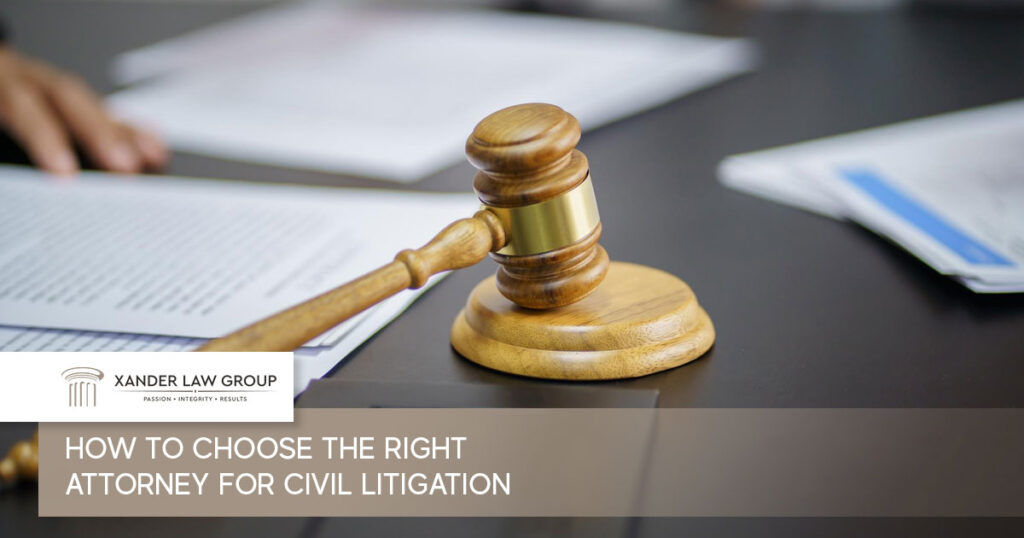When facing legal disputes related to contracts, property, family matters, or personal injury, a civil law attorney can be your strongest ally. Civil law covers a broad range of non-criminal legal issues, and having a skilled attorney ensures your rights are protected.
In this comprehensive guide, we’ll explore:
-
What a civil law attorney does
-
Common types of civil law cases
-
How to choose the right attorney
-
The benefits of hiring a civil lawyer
-
Frequently asked questions
By the end, you’ll have a clear understanding of how a civil law attorney can assist you in resolving disputes and securing justice.
What Is a Civil Law Attorney?
A civil law attorney specializes in resolving legal disputes between individuals, businesses, or organizations. Unlike criminal lawyers who handle crimes prosecuted by the state, civil attorneys focus on conflicts where one party seeks compensation or specific performance from another.
Key Responsibilities of a Civil Law Attorney
-
Legal Consultation: Assessing the merits of a case and advising clients on their rights.
-
Document Preparation: Drafting contracts, pleadings, and settlement agreements.
-
Negotiation: Mediating between parties to reach out-of-court settlements.
-
Litigation: Representing clients in court if a resolution isn’t reached.
-
Legal Research: Analyzing laws and precedents to build a strong case.
Common Types of Civil Law Cases
Civil law encompasses various legal disputes. Below are some of the most common areas where a civil attorney provides expertise.
1. Contract Disputes
Contracts form the basis of many business and personal agreements. When one party breaches a contract, a civil attorney can help enforce the terms or seek damages.
Examples:
-
Breach of employment contracts
-
Unpaid vendor agreements
-
Real estate contract disputes
2. Family Law
Family law falls under civil litigation, covering sensitive matters such as:
-
Divorce and child custody
-
Spousal and child support
-
Adoption and guardianship
A civil law attorney ensures fair resolutions while minimizing emotional stress.
3. Personal Injury Claims
If you’ve been injured due to someone else’s negligence, a civil lawyer can help you seek compensation.
Common Cases:
-
Car accidents
-
Medical malpractice
-
Slip and fall injuries
4. Property Disputes
Real estate and property conflicts often require legal intervention.
Examples:
-
Landlord-tenant disagreements
-
Boundary disputes
-
Zoning and construction issues
5. Employment Law
Workplace conflicts involving discrimination, wrongful termination, or wage disputes fall under civil law.
6. Debt and Bankruptcy
Creditors and debtors often need legal assistance in:
-
Debt collection defense
-
Bankruptcy filings
-
Loan disputes
How to Choose the Right Civil Law Attorney
Selecting the right attorney can significantly impact your case outcome. Consider the following factors:
1. Experience and Specialization
Look for a lawyer with expertise in your specific legal issue (e.g., family law, personal injury).
2. Reputation and Reviews
Check online reviews, testimonials, and peer ratings (e.g., Avvo, Martindale-Hubbell).
3. Communication Skills
Your attorney should be responsive and explain legal terms clearly.
4. Fee Structure
Understand their billing method—hourly rates, flat fees, or contingency (common in personal injury cases).
5. Success Rate
Ask about past case results and settlement amounts.
Benefits of Hiring a Civil Law Attorney
1. Legal Expertise
Attorneys understand complex laws and can navigate court procedures efficiently.
2. Strong Negotiation Skills
Many cases settle out of court—having a skilled negotiator maximizes your compensation.
3. Proper Documentation
Mistakes in legal paperwork can delay or weaken your case. A lawyer ensures accuracy.
4. Emotional Support
Legal battles can be stressful. An attorney provides objective guidance.
5. Higher Compensation
Studies show that represented plaintiffs receive larger settlements than those without lawyers.
Frequently Asked Questions (FAQs)
Q1: When should I hire a civil law attorney?
If you’re involved in a legal dispute where financial compensation or enforcement of rights is sought, consult an attorney immediately.
Q2: How much does a civil lawyer cost?
Fees vary—some work on contingency (no win, no fee), while others charge hourly or flat rates.
Q3: Can I represent myself in civil court?
Yes, but it’s risky. Courts follow strict procedures, and mistakes can harm your case.
Q4: How long do civil cases take?
It depends on complexity—some settle in months, while others take years if they go to trial.
Q5: What’s the difference between civil and criminal law?
Criminal law deals with crimes (e.g., theft, assault) prosecuted by the government. Civil law resolves disputes between private parties.
Conclusion
A civil law attorney plays a crucial role in protecting your rights and securing fair resolutions in legal disputes. Whether you’re dealing with contract breaches, family conflicts, or personal injuries, hiring an experienced lawyer ensures the best possible outcome.
If you’re facing a civil legal issue, don’t wait—consult a qualified attorney today to explore your options.

